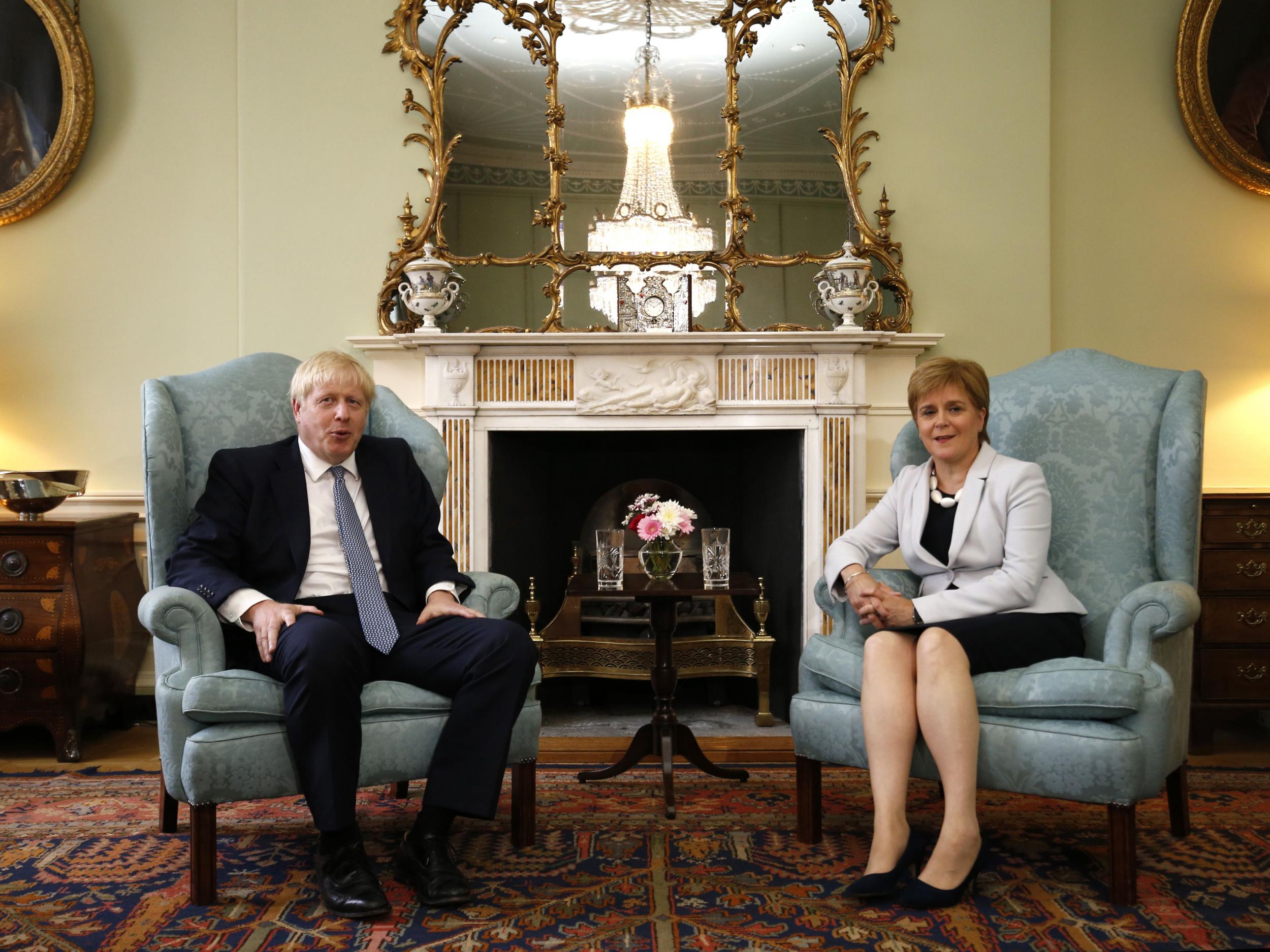The United Kingdom is far more important than your crash-out Brexit, Boris Johnson
David Cameron once remarked that the union of England and Scotland was more valuable to him than the Brexit issue – Johnson needs to realise the same truth

As when the eight territories of the former large and multicultural Federal Republic of Yugoslavia eventually shrunk to become just a confederation of Serbia and Montenegro, and then just Serbia, so the United Kingdom of Great Britain and Northern Ireland seems set to shrivel over the next few years to become England plus Wales – and no doubt in due course just England. At the rate things are developing, Boris Johnson will be lucky to hang on to Cornwall, assuming he would not be long gone from No 10 by then.
So much for the UK, which Mr Johnson is still pleased to call “the most successful political and economic union in history”. He may well prove to be the last prime minister of the United Kingdom as we know it, and it will, in very large part, be his own fault. Splashing £300m around some projects in Scotland, Wales and Northern Ireland, styling himself as minister for the union and spewing out bombast about the “awesome foursome” will not be sufficient to save the UK from its imminent disintegration.
The country faces the most lethal threat since the partition of Ireland in 1922: Brexit, and the democratic challenges that throws up. It is hardly worth mentioning that it was Mr Johnson’s involvement in the 2016 referendum that has led us to this pass. The people of Northern Ireland and Scotland voted to stay in the EU and claim, rightly, there is no mandate to tear them out of it, and certainly not on the kind of no-deal terms now being canvassed as the “assumption” the government is proceeding on.
The difference between these two parts of the kingdom and, say, London or Bath (which are also enthusiastic Remain areas) is that the Scots and Northern Irish are entitled, under certain conditions, to organise a plebiscite to determine their own future. They, too, can vote to leave a union. David Cameron once remarked that the union of England and Scotland was more valuable to him than the Brexit issue; Mr Johnson needs to say this and realise the same truth.
Indeed there is no end of irony in the arguments deployed by British ministers, led by Mr Johnson, as to why it would be economically and politically mad for the Scots and Northern Irish to extract themselves from the UK, while at the same time extolling the virtues of “taking back control” under a hard Brexit. Indyref2 in Scotland, as it’s termed, and a border poll in Northern Ireland will follow not long after a no-deal Brexit, and the chances of them staying in the UK diminish as every day produces fresh evidence of the government’s determination to pursue Brexit, including the no-deal version, “by all means necessary” by 31 October. To say the least, it is not what was promised in the 2016 Leave campaign.
It is remarkable to see how far ministers are prepared to call their bluff (assuming it is one). Downing Street is now briefing that Mr Johnson does not even want to meet EU leaders to discuss Brexit until they agree to abandon the Irish backstop. Rather than go to Brussels, Dublin, Paris or Berlin to make the case face to face, Mr Johnson contents himself with courtesy telephone calls and plays all coy.
Maybe Mr Johnson, like Mr Gove, thinks the prospect of a chaotic no-deal Brexit will make them buckle and beg the British for mercy. Perhaps they will. But perhaps they too read the British press and their diplomats report back on the intelligence they are able to gather in London, and realise that this is all an extraordinary, and entirely self-destructive, attempt at a bluff by the British – a game of chicken, a ruse.
Even if it were not, and the idea of a no-deal Brexit is real, and parliament is unable to stop it, then who is going to suffer? Yes, some businesses in France, Belgium, the Netherlands and Germany in particular – but the British stand to lose far, far more. The EU might know that it would have to impose its own hard border in Ireland because the British, theatrically, would refuse to do so. It would not want to do that. But the EU would also object to being swindled out of the £39bn, or more, the UK owes them, and the uncertainty about the rights of their citizens as EU nationals (and not after their conversion to being UK citizens). How willing would the EU be to grant a generous free trade and security agreement in such circumstances? It would be closer to a Cold War than a warm partnership.
Divorces have a habit of turning nasty, and these are no exceptions. The UK divorcing the EU, the Scottish divorcing the English, the Northern Irish divorcing the British and remarrying into the EU – these are the kinds of traumas that might be manageable with goodwill once every century or so. Today they will be concatenating over a few short years. The 2020s are approaching, and they look to be years of political strife and economic slump. Who voted for that?
Join our commenting forum
Join thought-provoking conversations, follow other Independent readers and see their replies
Comments